
Find Help
More Items From Ergsy search
-
What is Parkinson's disease?
Relevance: 100%
-
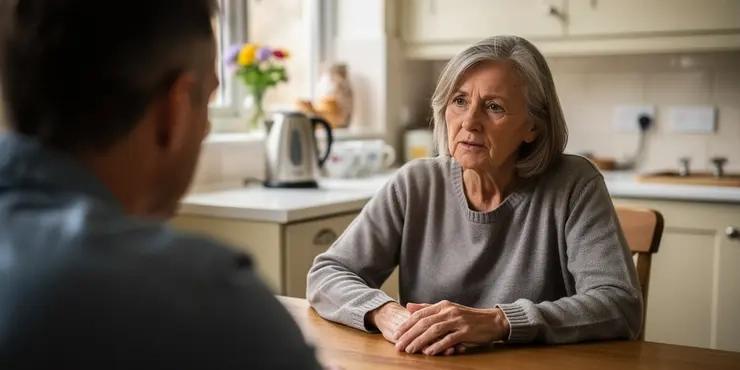
Parkinson's disease: Karen's story | NHS
Relevance: 91%
-
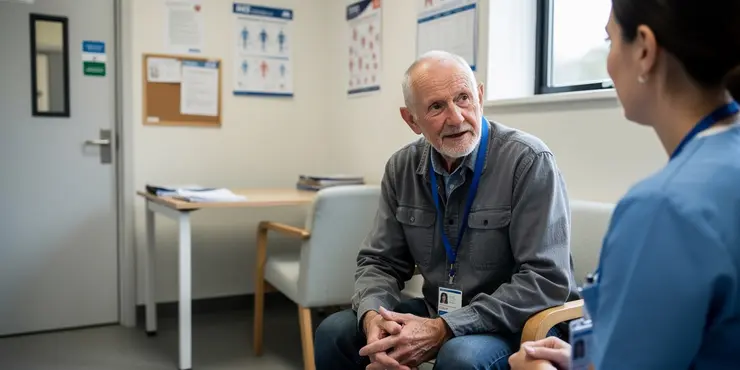
Parkinson’s Disease and NHS RightCare: Long Term Condition Scenario
Relevance: 82%
-
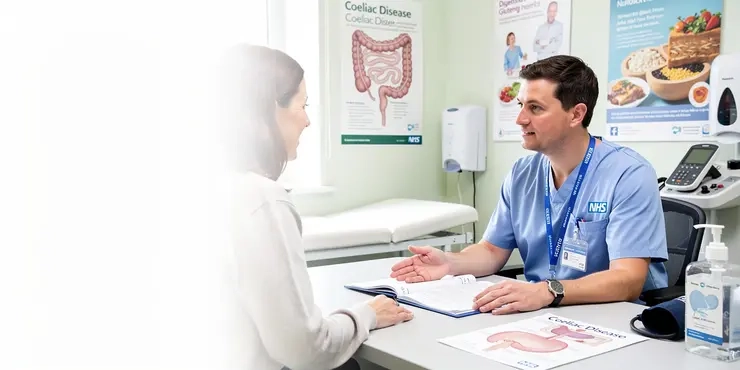
Coeliac Disease: Session 1: What is Coeliac Disease?
Relevance: 29%
-
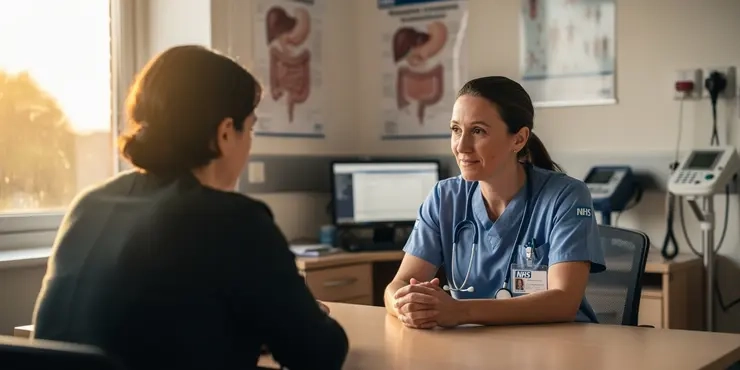
Coeliac disease
Relevance: 29%
-
How does Huntington's disease affect movement?
Relevance: 28%
-
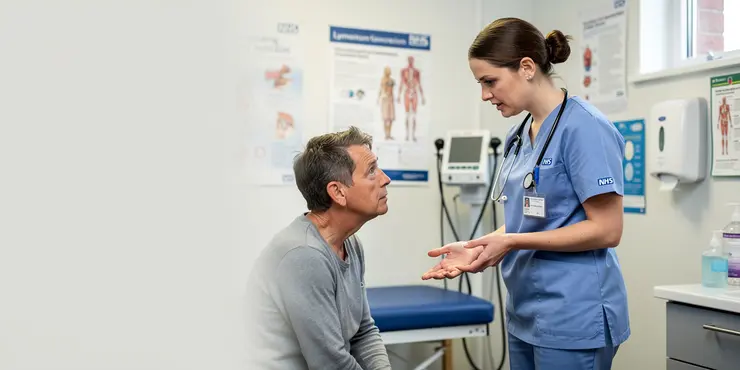
What is Lyme Disease?
Relevance: 28%
-
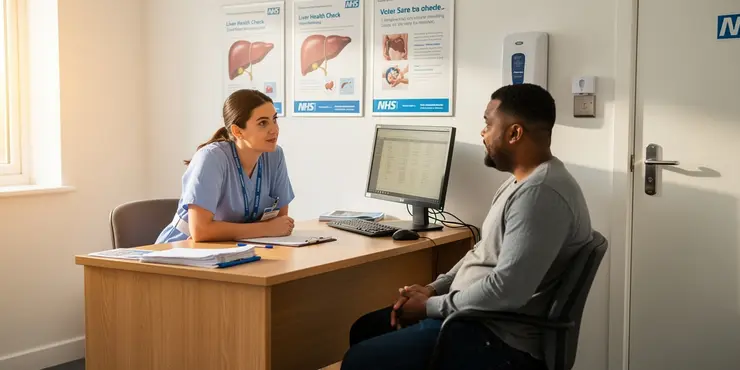
Liver disease | NHS
Relevance: 28%
-

Is Huntington's disease fatal?
Relevance: 28%
-
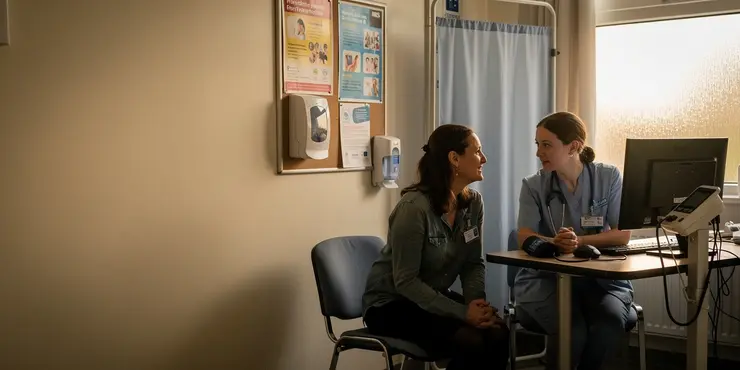
Is Crohn's disease contagious?
Relevance: 28%
-
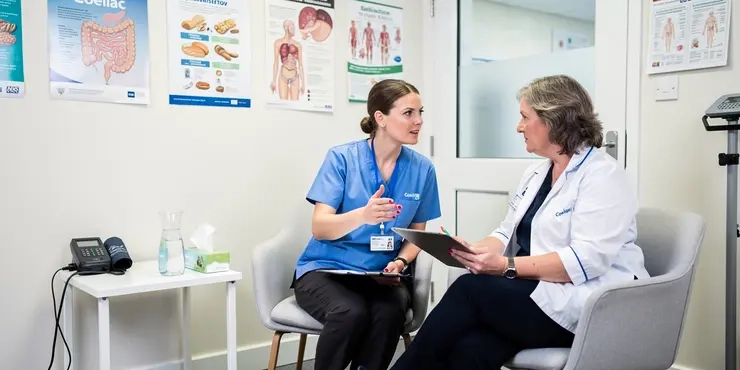
Causes of coeliac disease
Relevance: 28%
-
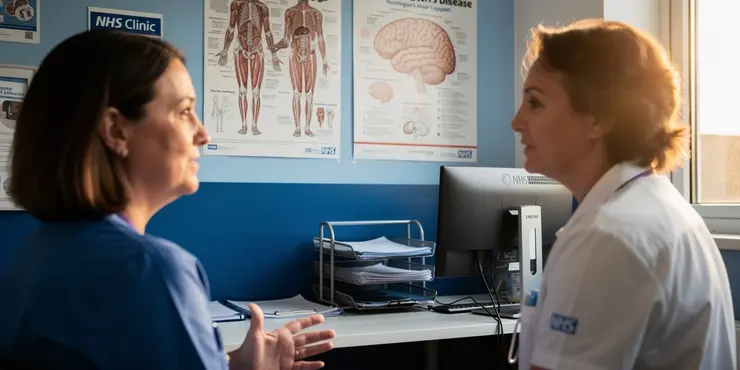
What is Huntington's disease?
Relevance: 28%
-
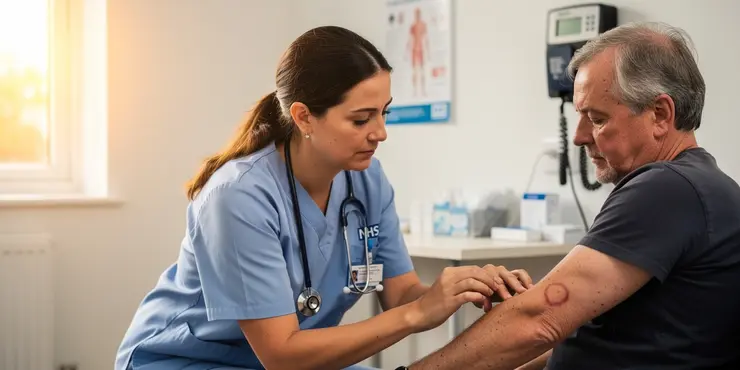
Lyme disease: What is it?
Relevance: 28%
-
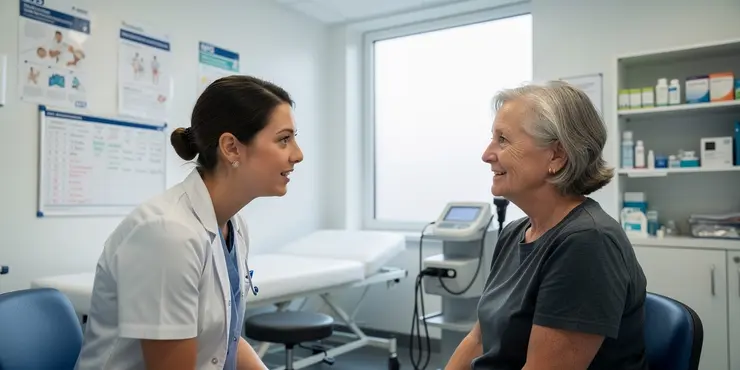
Is there a cure for Crohn's disease?
Relevance: 27%
-
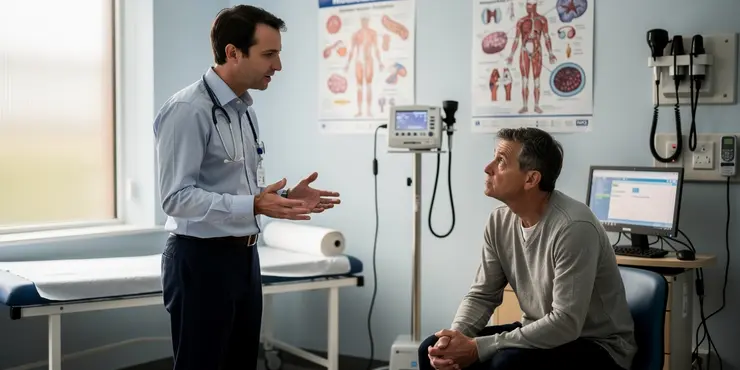
What is Mitochondrial disease?
Relevance: 27%
-
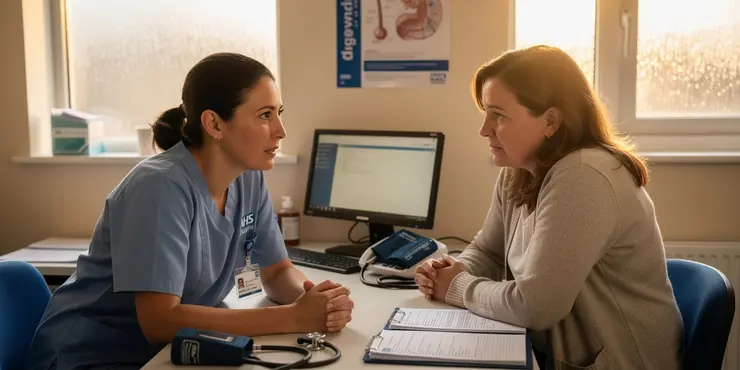
Is there a vaccine for Lyme disease?
Relevance: 27%
-
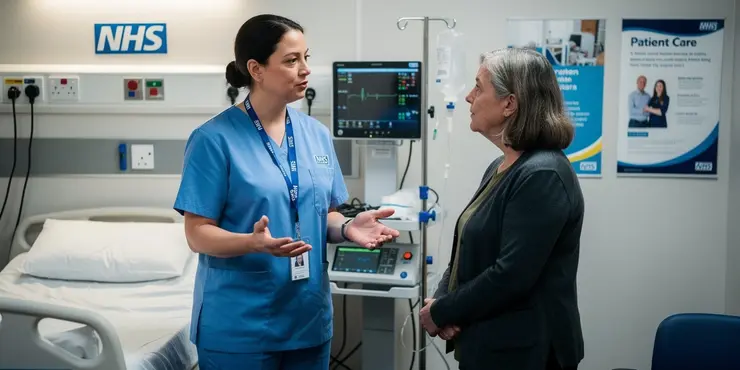
Is flesh-eating disease contagious?
Relevance: 27%
-
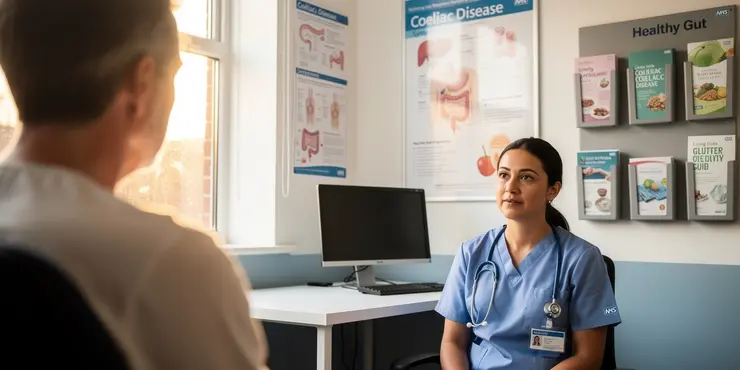
Symptoms of coeliac disease
Relevance: 27%
-
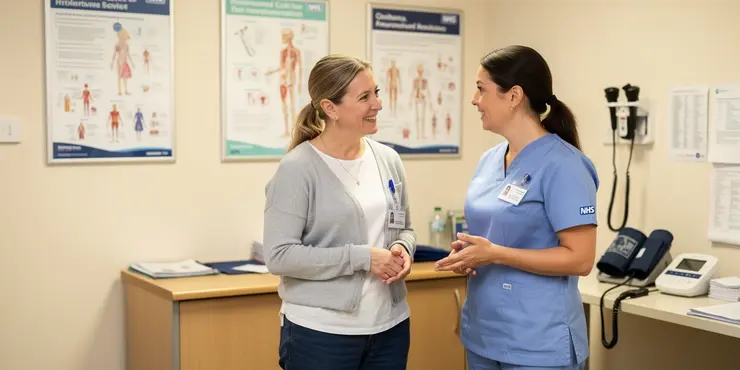
Do UK mosquitoes carry diseases?
Relevance: 27%
-
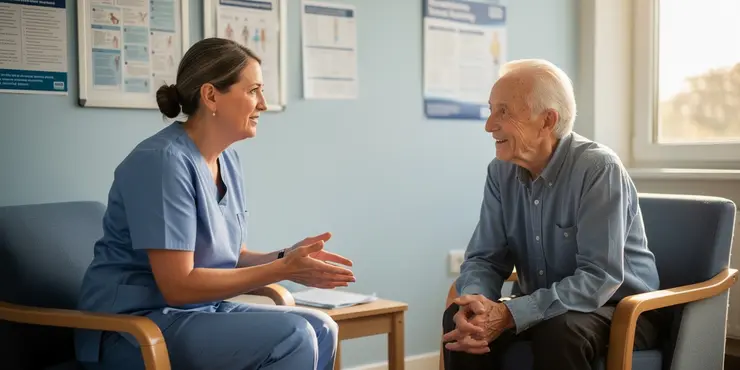
What is Alzheimer's disease?
Relevance: 27%
-
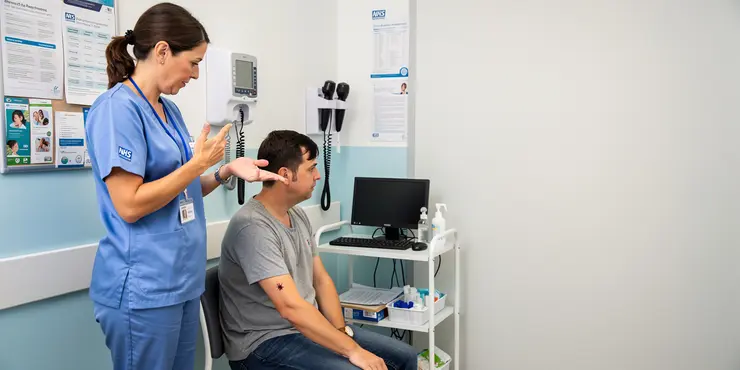
Do spiders in the UK carry diseases?
Relevance: 27%
-
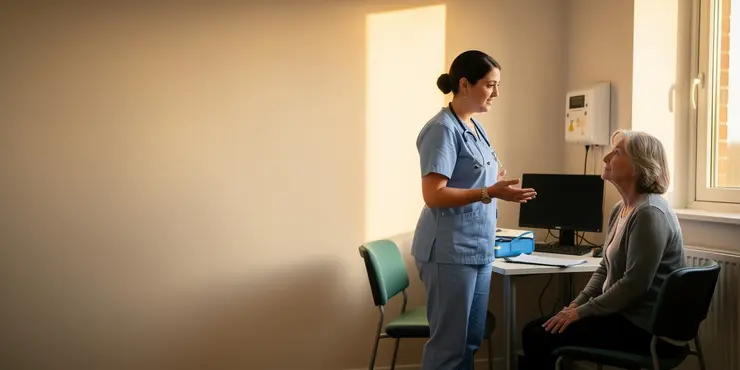
What causes Crohn's disease?
Relevance: 26%
-
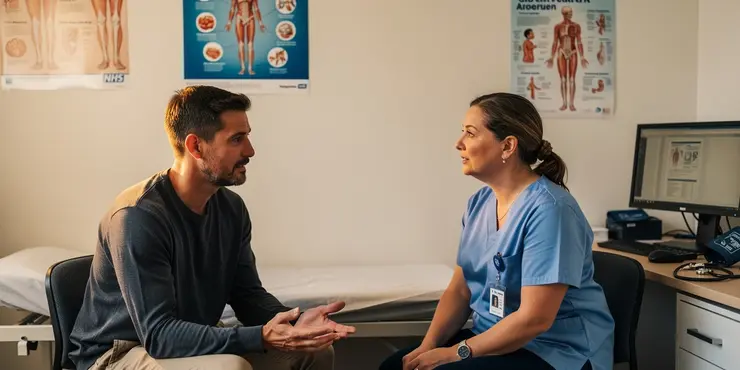
What causes Huntington's disease?
Relevance: 26%
-
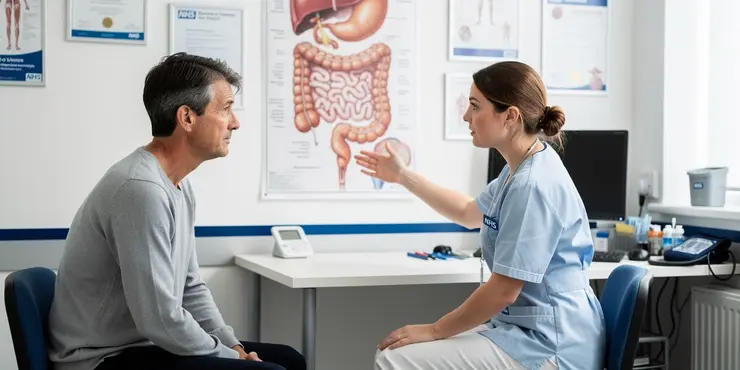
How is Crohn's disease diagnosed?
Relevance: 26%
-
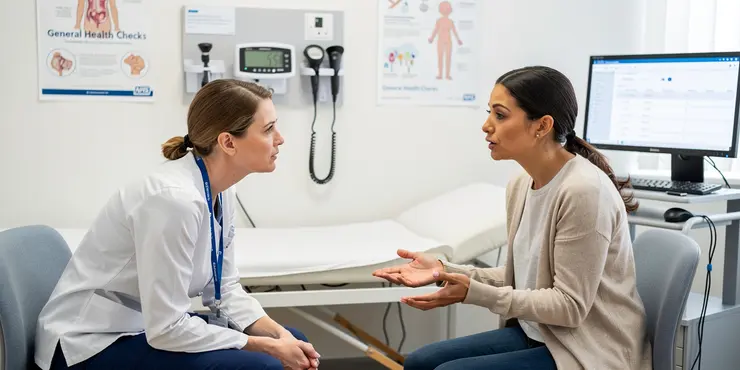
Can Lyme disease be treated?
Relevance: 26%
-
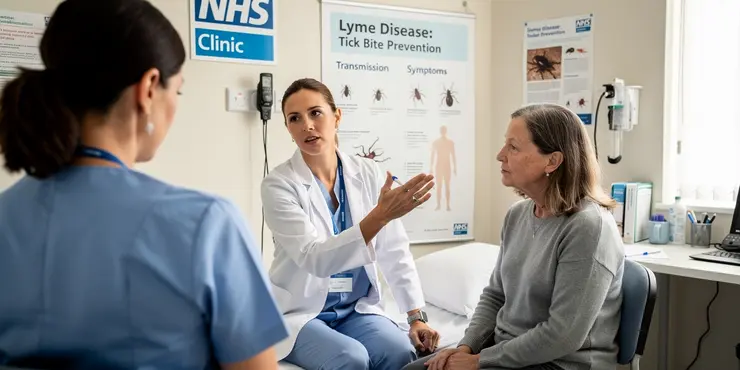
How is Lyme disease transmitted?
Relevance: 26%
-
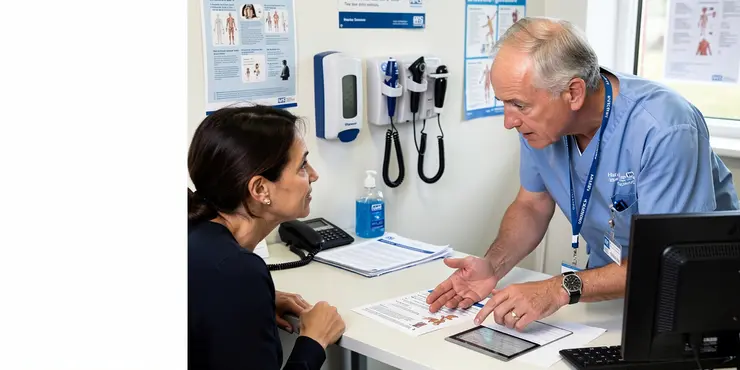
What is a flesh-eating disease?
Relevance: 26%
-
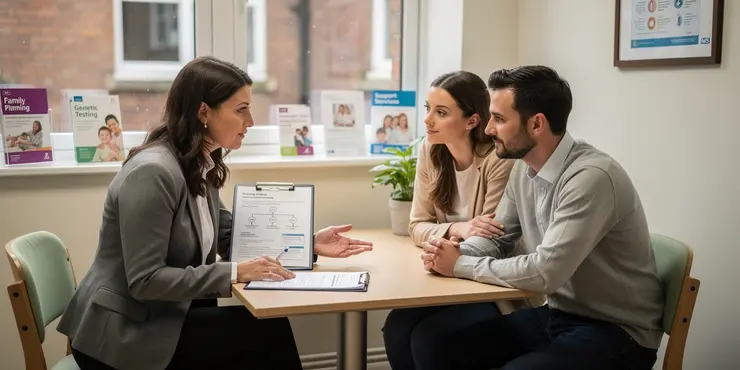
Can Huntington's disease be prevented?
Relevance: 26%
-
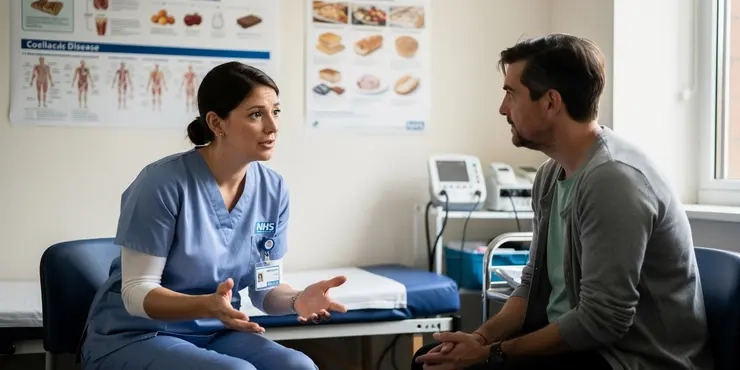
NHSGGC - What is Coeliac Disease?
Relevance: 26%
-
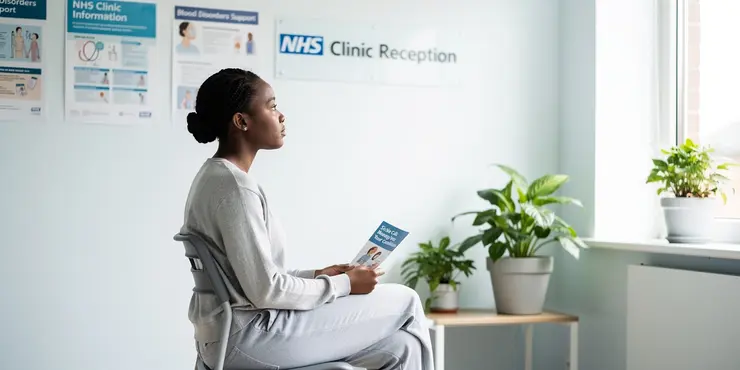
What is sickle cell disease?
Relevance: 26%
-
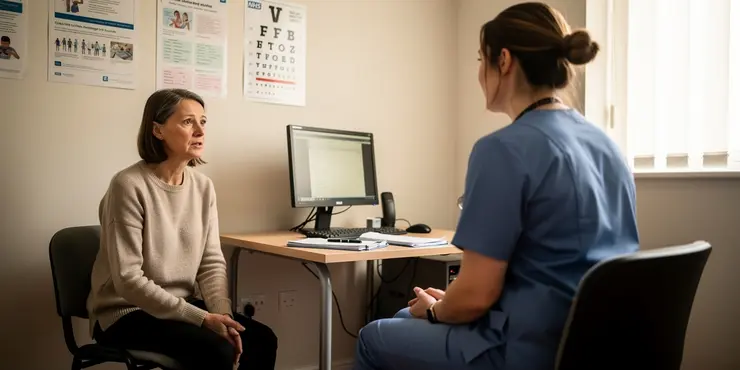
What are the symptoms of Huntington's disease?
Relevance: 26%
-
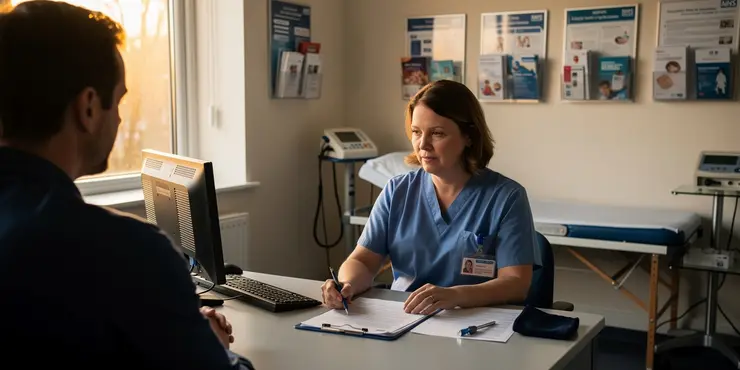
How is Huntington's disease diagnosed?
Relevance: 26%
-
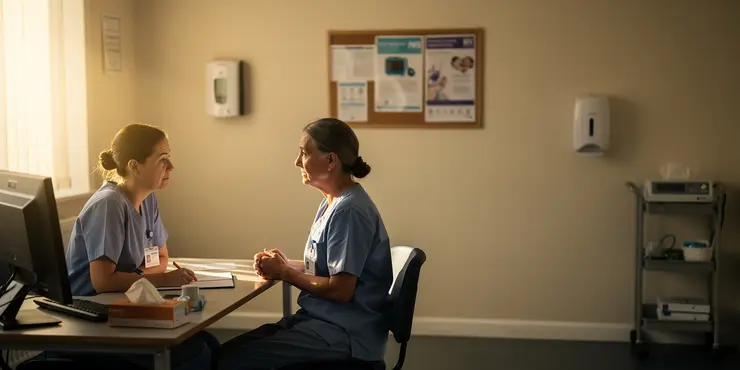
Can Huntington's disease be cured?
Relevance: 26%
-
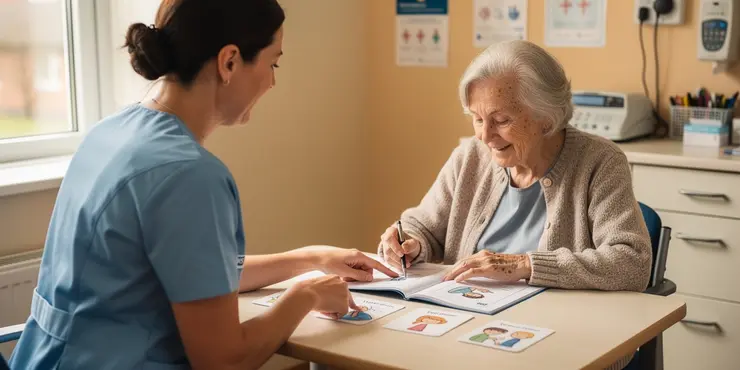
How common is Alzheimer's disease in the UK?
Relevance: 26%
-
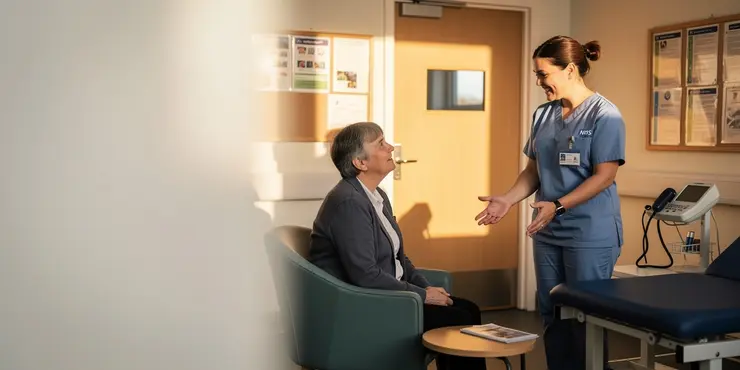
Introduction to Sickle cell disease
Relevance: 26%
-
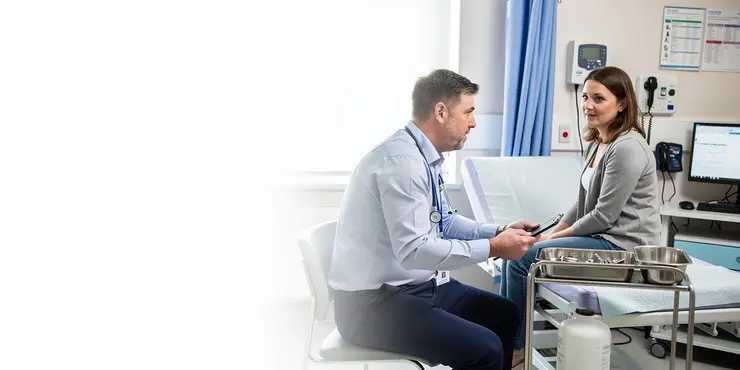
Is surgery necessary for Crohn's disease?
Relevance: 26%
-
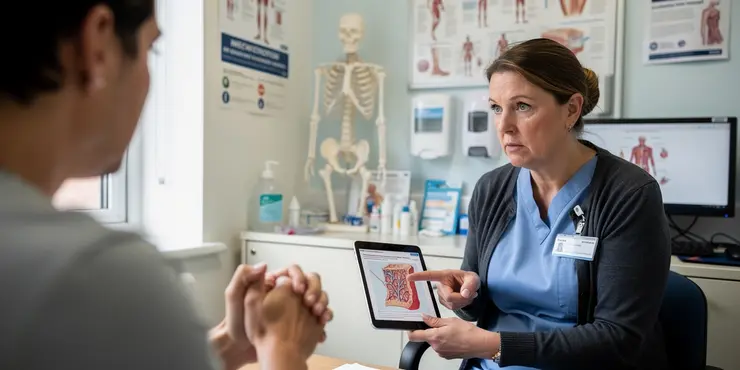
What is a flesh eating disease?
Relevance: 26%
-
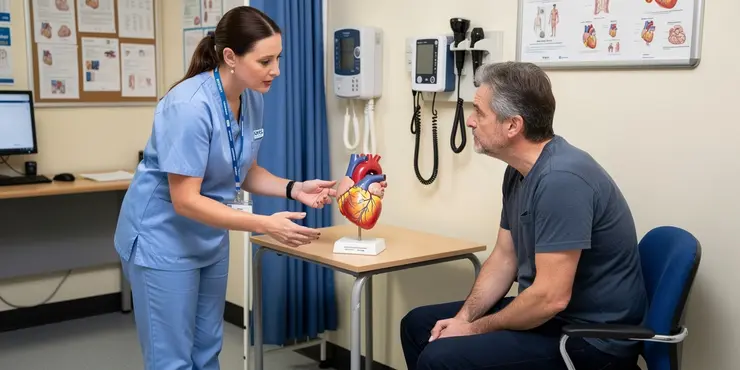
What is heart valve disease?
Relevance: 26%
-

Living Well with Coeliac Disease
Relevance: 26%
-
Is motor neurone disease hereditary?
Relevance: 26%
What is Parkinson's Disease?
Parkinson’s disease is a progressive neurological disorder that affects movement control. It is named after Dr. James Parkinson, who first described the condition in 1817. Parkinson’s disease primarily affects the dopamine-producing neurons in a specific area of the brain called the substantia nigra. The gradual loss of these neurons leads to the hallmark symptoms of the disease, which include tremors, stiffness, slowness of movement, and balance problems.
Symptoms of Parkinson's Disease
The symptoms of Parkinson’s disease usually develop slowly over time. The progression of symptoms can vary among individuals. The most common symptoms include:
Tremor: A shaking or trembling, often starting in a hand or finger. Many people experience a “resting tremor,” which occurs when the limb is relaxed.
Bradykinesia: This refers to slowness of movement. Over time, people with Parkinson’s may find it difficult to complete simple tasks and may experience a reduction in spontaneous movements.
Muscle rigidity: Stiffness or inflexibility of the muscles can occur, which might limit the range of motion and cause pain or discomfort.
Postural instability: Impaired balance and coordination can lead to falls and accidents.
Causes and Risk Factors
The exact cause of Parkinson’s disease remains unknown, but several factors may contribute to its development. Genetic mutations are linked to Parkinson's in some cases, especially familial Parkinson’s disease. Environmental factors, such as exposure to toxins and heavy metals, have been studied for their potential role in the disease.
Age is the most significant risk factor, with the majority of individuals diagnosed being over 60 years old. Men are more likely than women to develop Parkinson’s disease, but the reason for this discrepancy is not well understood. Having a family member with Parkinson's slightly increases the risk.
Treatment and Management
While there is currently no cure for Parkinson’s disease, various treatments can help manage symptoms. Medications such as Levodopa are used to increase dopamine levels in the brain and improve motor symptoms. Dopamine agonists and MAO-B inhibitors may also be used to support dopamine function.
In some cases, surgical options such as Deep Brain Stimulation (DBS) may be considered to alleviate symptoms. DBS involves implanting a device that sends electrical signals to specific parts of the brain.
Non-pharmacological approaches, including physical therapy, occupational therapy, and speech therapy, are integral to managing symptoms and maintaining quality of life. Lifestyle changes, such as regular exercise and a balanced diet, can also be beneficial in managing Parkinson's disease.
Conclusion
Parkinson’s disease presents unique challenges due to its progressive nature and the variability of symptoms among individuals. Awareness and understanding of the disease can help those affected, including their families and caretakers, to manage its impact and improve their quality of life. Ongoing research continues to explore potential treatments and the underlying causes of Parkinson’s, offering hope for future advancements in the care and management of the condition.
What is Parkinson's Disease?
Parkinson's disease is an illness that affects how you move. It gets worse over time. It is named after Dr. James Parkinson, who found out about it in 1817. In Parkinson's, some brain cells that make a chemical called dopamine start to die. This happens in a part of the brain called the substantia nigra. When these cells die, people have trouble with shaking, moving slowly, feeling stiff, and losing balance.
Symptoms of Parkinson's Disease
The signs of Parkinson’s disease appear slowly. They can be different for each person. The most common signs are:
Tremor: This is a kind of shaking, usually starting in a hand or finger. It often happens when the person is relaxed.
Bradykinesia: This means moving slowly. People with Parkinson's may struggle to do simple things and move less often.
Muscle rigidity: This means muscles feel stiff and can't move as freely. This can hurt and make it harder to move.
Postural instability: This means trouble with balance, which can cause falls.
Causes and Risk Factors
We don’t know exactly why people get Parkinson’s disease. But some things might make it more likely. Some people can get it because it runs in their family. Things in the environment, like certain chemicals, might also play a part.
Getting older is the biggest risk factor. Most people with Parkinson’s are over 60 years old. Men are more likely to get it than women, but we don’t know why. If someone in your family has Parkinson’s, you have a higher chance of getting it too.
Treatment and Management
There is no cure for Parkinson’s disease yet, but there are treatments to help manage it. Medicines like Levodopa can help with movement by increasing dopamine in the brain. Other medicines also help dopamine work better.
Sometimes, surgery can help. One type of surgery is Deep Brain Stimulation (DBS). It uses a device to send signals to the brain.
Other ways to help include physical therapy, occupational therapy, and speech therapy. These can help you stay healthy and do things you enjoy. Exercising and eating healthy food can also help manage symptoms.
Conclusion
Parkinson's disease can be hard because it changes over time, and symptoms are different for everyone. Knowing about the disease can help people and their families cope better. Researchers are working on new treatments, which gives hope for better care in the future.
Frequently Asked Questions
What is Parkinson's disease?
Parkinson's disease is a neurodegenerative disorder that affects movement, causing symptoms such as tremors, stiffness, slowness of movement, and balance problems.
What causes Parkinson's disease?
The exact cause of Parkinson's disease is unknown, but it involves the loss of dopamine-producing neurons in the brain.
What are the main symptoms of Parkinson's disease?
The main symptoms include tremors, muscle rigidity, bradykinesia (slowness of movement), balance problems, and changes in speech and writing.
Is Parkinson's disease hereditary?
While most cases of Parkinson's disease are not directly inherited, genetic factors can play a role, and some cases are linked to specific genetic mutations.
How is Parkinson's disease diagnosed?
Parkinson's disease is diagnosed based on medical history, symptoms, neurological exams, and sometimes imaging tests to rule out other conditions.
What treatments are available for Parkinson's disease?
Treatments include medications such as levodopa, dopamine agonists, and MAO-B inhibitors, lifestyle changes, physical therapy, and sometimes surgical options like deep brain stimulation.
Can Parkinson's disease be cured?
Currently, there is no cure for Parkinson's disease, but treatments can help manage symptoms and improve quality of life.
What is the progression of Parkinson's disease?
Parkinson's disease is a progressive condition, meaning symptoms usually worsen over time, although the rate of progression varies among individuals.
What role does dopamine play in Parkinson's disease?
Dopamine is a neurotransmitter crucial for coordinating movement. In Parkinson's, the brain's ability to produce dopamine is diminished, leading to movement symptoms.
Are there any lifestyle changes that can help manage Parkinson's disease?
Yes, regular exercise, a healthy diet, and activities that improve balance and flexibility can be beneficial in managing Parkinson's symptoms.
How common is Parkinson's disease?
Parkinson's disease is quite common, affecting approximately 1 million people in the United States and more than 10 million worldwide.
At what age does Parkinson's disease typically onset?
Parkinson's disease most commonly affects people over the age of 60, but early-onset Parkinson's can occur in younger individuals.
What complications can arise from Parkinson's disease?
Complications can include cognitive changes, depression, sleep disturbances, and difficulties with swallowing and chewing.
Can Parkinson's disease affect mental health?
Yes, individuals with Parkinson's disease may experience depression, anxiety, and cognitive changes.
Is there a link between Parkinson's disease and other neurological conditions?
Some research suggests a link between Parkinson's and conditions like dementia, as both involve degeneration of brain cells.
What are the early signs of Parkinson's disease?
Early signs can include subtle tremors, slight changes in handwriting, and decreased facial expression (masked face).
Can diet impact Parkinson's disease?
While no specific diet can prevent or cure Parkinson's, a balanced diet may help manage symptoms and improve overall health.
What research is being conducted on Parkinson's disease?
Ongoing research focuses on understanding its causes, finding new treatments, and exploring the potential for neuroprotective therapies and a cure.
Can environmental factors contribute to Parkinson's disease?
Some studies suggest environmental factors, such as exposure to certain toxins, may increase the risk of developing Parkinson's.
How can family and friends support someone with Parkinson's disease?
Support can include helping with daily tasks, attending medical appointments, providing emotional support, and encouraging regular physical activity.
What is Parkinson's disease?
Parkinson's disease is an illness that affects the brain. It can make it hard for people to move their bodies the way they want to. It might make their hands shake, or their muscles feel stiff.
Some people with Parkinson's might also feel sad or forgetful.
If you want to learn more about Parkinson's, you can ask a doctor or look at books and websites that can help you.
Parkinson's disease is an illness that affects the brain. It makes it hard to move. It can cause shaking, stiffness, slow movements, and trouble with balance.
What makes people get Parkinson's disease?
Parkinson's disease happens because of changes in the brain.
Doctors do not know exactly why these changes happen.
Some things might make it more likely to get Parkinson's:
- Being older. Most people get it after 60 years old.
- It can run in families. If a family member has it, you might too.
- Some chemicals in the environment might cause it.
Here are ways to get more help to understand this:
- Ask someone to explain it to you.
- Use pictures and diagrams.
- Watch videos about Parkinson's.
We do not know what causes Parkinson's disease. But it happens when certain cells in the brain stop making a chemical called dopamine.
What are the main signs of Parkinson's disease?
Here are some signs of Parkinson's disease:
- Shaking hands or legs
- Stiff muscles
- Moving slowly
- Problems with balance
If you think you have these signs, talk to a doctor. A family member or friend can help you.
The main signs are shaking, stiff muscles, moving slowly, balance troubles, and changes in how you talk and write.
Can you catch Parkinson's disease from your family?
Some people might get Parkinson's disease from their family. This means it can run in families sometimes. But not everyone who has Parkinson’s got it from their family. If you're worried, you can talk to a doctor.
Helpful tip:
- Ask a doctor if you have questions about family health.
- Use pictures or videos to learn more about Parkinson's disease.
- Write down questions you have to ask someone who can help.
Most people do not get Parkinson's disease from their parents. But, your genes might have something to do with it. Some people get Parkinson's because there is a change in their genes.
If you find reading hard, you can try using tools like text-to-speech to help. Also, reading with a friend or family member can make it easier to understand.
How do doctors find out if someone has Parkinson's disease?
Doctors find out if someone has Parkinson's disease by looking at their medical history, checking their symptoms, doing brain and body tests, and sometimes using special pictures of the brain to make sure it's not something else.
What treatments help people with Parkinson's disease?
Parkinson's disease is an illness that affects the brain. It can make it hard to move and can cause shaking.
There are different ways to help people with Parkinson's disease:
- Medicine: Doctors can give special pills to help the brain work better.
- Exercise: Moving your body with exercises can make muscles stronger and help with balance.
- Therapy: Talking with a therapist can help with mood and memory.
It's important to see a doctor to decide the best way to help. You can also use tools like reminder notes to help remember things.
Treatments can include taking medicine like levodopa, dopamine agonists, and MAO-B inhibitors. It can also help to change how you live, do physical exercises, and sometimes have surgery like deep brain stimulation.
Can we fix Parkinson's disease?
Parkinson's disease is a sickness that affects the brain. It makes it hard for people to move and do things.
Right now, there is no fix for Parkinson's disease. Doctors and scientists are working hard to find one.
Medicines can help people with Parkinson's disease. These medicines can make it easier to move and feel better.
It's important for people with Parkinson's to visit their doctor. The doctor can give advice and help with caring for the person.
Support groups and talking with others can also help. People with Parkinson's can share their experiences and learn from each other.
Right now, there is no way to make Parkinson's disease go away forever. But doctors have ways to help control the symptoms and make life better for people who have it.
How does Parkinson's disease get worse over time?
Parkinson's disease is an illness. It affects how a person moves their body. This illness can change and get worse over time. It does not all happen at once.
Here’s how it might get worse:
- Early Stage: At first, you might notice small changes. Maybe your hand shakes a little, or it is hard to move one side of your body.
- Middle Stage: Later, it can become harder to walk or do things with your hands. You might find it hard to balance. Doing everyday tasks might take more time.
- Later Stage: In the later stages, these problems can be much bigger. It might be hard to talk or even stand up.
If you or someone you know has Parkinson's, doctors and nurses can help. There are medicines and exercises that can make it easier to live with the illness. Tools like walking aids or special spoons can also help.
Parkinson's disease is an illness that gets worse over time. This means that the signs of the illness can change and get more serious. But, this happens at different speeds for different people.
Here are some tips that might help:
- Read out loud. This can help you understand better.
- Ask someone to explain the difficult words.
- Use pictures to help you remember.
How does dopamine affect Parkinson's disease?
Dopamine is a special chemical in the brain. It helps our body move smoothly.
In Parkinson's disease, there is not enough dopamine. This makes it hard to move. People can feel shaky and stiff.
Doctors might use medicines to help increase dopamine. This can help with movement.
If you want more help, you can use picture cards or talk to a helper.
Dopamine is a chemical in the brain. It helps us move our bodies. People with Parkinson's disease have trouble making dopamine. This makes it hard for them to move properly.
Can lifestyle changes help with Parkinson's disease?
Yes, some changes can help. Eating healthy foods and exercising can be good for people with Parkinson's. Resting well and keeping the mind busy are also important. Regular doctor visits can help manage the disease too.
If you need help reading or understanding, ask someone you trust. Using pictures, audio, or apps can also make it easier to understand information.
Yes, doing exercise, eating healthy food, and doing activities that help with balance and flexibility can help people with Parkinson's feel better.
How many people have Parkinson's disease?
Parkinson's disease is a sickness that some people get. It makes it hard for them to move their body. It is not very common, but some people do have it.
If you or someone you know has Parkinson's disease, it can help to talk to a doctor. They can give you more information and advice.
Parkinson's disease is a health problem. It affects many people. In the United States, around 1 million people have it. All over the world, more than 10 million people have Parkinson's disease.
When do people usually get Parkinson's disease?
Parkinson's disease usually happens to people who are more than 60 years old. But sometimes, younger people can also get it. This is called early-onset Parkinson's.
What problems can happen because of Parkinson's disease?
Parkinson's disease can cause some problems. These problems can happen in the body or with the mind.
Here are some problems Parkinson's disease can cause:
- Trouble moving around
- Shaking that you cannot control
- Feeling stiff and hard to move
- Feeling very tired
- Having a tough time remembering things
- Finding it hard to talk or write
- Feeling sad or worried
Here are things that can help:
- Ask a caregiver or doctor for advice
- Use pictures or simple words to understand better
- Use apps or tools to remind you about things
Sometimes problems can happen. These problems might be:
- Changes in how you think.
- Feeling very sad.
- Having trouble sleeping.
- Having trouble swallowing and chewing food.
Things that can help:
- Talking to a doctor.
- Using special tools to help with eating.
- Practicing relaxing before bed.
Can Parkinson's disease change how we feel?
Parkinson's disease can sometimes make people feel sad or worried. It can also change how a person thinks. It is important to talk to a doctor if you feel this way. Reading simple books or using picture guides can help understand more about Parkinson's. Tools like talking apps or videos can also be helpful.
Yes, people who have Parkinson's disease can feel very sad (that's called depression), worried (that's called anxiety), and might have changes in thinking (that's called cognitive changes).
Are Parkinson's disease and other brain problems connected?
Parkinson's disease is a problem that affects the brain. It can cause shaking and make it hard to move.
Some people want to know if Parkinson's disease is connected to other brain problems like Alzheimer's.
If you have questions or find reading hard, you can ask someone to help you or use tools like audiobooks.
Some research says that Parkinson's and dementia might be connected. Both can cause brain cells to stop working.
What are the first signs of Parkinson's disease?
Parkinson's disease is a sickness that affects the brain. It can make moving hard.
Here are some early signs to look out for:
- Shaking: Your hand or fingers shake when you're not moving them.
- Small handwriting: Your writing gets smaller or cramped.
- Slow movements: You move slower than before.
- Stiff muscles: Your muscles feel tight and don't move smoothly.
- Trouble with balance: You find it hard to stand or walk without stumbling.
These signs don't mean you have Parkinson's for sure, but it's good to ask a doctor if you notice them.
Help Tools:
- Write down changes or problems you notice.
- Bring notes to the doctor for better help.
Early signs can show up in small ways. You might notice little shakes or tremors, messy or small handwriting, and less movement in the face.
Can Food Help If You Have Parkinson's Disease?
Do the foods we eat change how Parkinson's disease affects us?
If you want to learn more, tools like audiobooks or apps that read text out loud can help you understand better.
There is no special food that can stop or fix Parkinson's. But eating healthy foods can help you feel better and stay strong.
What are scientists studying about Parkinson's disease?
Scientists are trying to understand Parkinson's disease better. They study why it happens and look for new ways to treat it. Here’s how they do it:
- Testing new medicines: They try new drugs to help people with Parkinson's feel better.
- Understanding the brain: They study the brain to find out what causes Parkinson's.
- Finding early signs: Scientists look for early signals of Parkinson's. This can help people get help sooner.
Helpful tools: Pictures, videos, and easy-to-read books can help understand these ideas.
Scientists are trying to learn why it happens, find new ways to help, and look for a cure. They want to protect the brain and help people feel better.
Can the environment cause Parkinson's disease?
Some studies say that things in the environment, like certain poisons, might make it more likely for someone to get Parkinson's.
How can family and friends help someone with Parkinson's disease?
Parkinson's disease is a sickness that makes it hard for people to move. It's important for family and friends to help them. Here are some ways to help:
- Be patient: People with Parkinson's may move slowly. Give them extra time.
- Listen: Talk with them and listen to what they say. It's good to show you care.
- Help with tasks: Offer to help with shopping, cooking, or cleaning if they find it hard.
- Go to appointments: Go with them to see the doctor. It can make them feel better and remember what the doctor says.
- Learn together: Read books or find videos about Parkinson's. Knowing more helps you understand how they feel.
- Exercise together: Gentle exercise like walking can be good. Ask their doctor what is safe.
- Join support groups: Find a group where they can meet others with Parkinson's. It's nice to talk to people who understand.
These are some ways to help your loved one feel better and loved. Always remember to show kindness and love.
Support can mean helping with things like daily tasks, going to the doctor, talking and listening to feelings, and cheering someone on to stay active.
Useful Links
This website offers general information and is not a substitute for professional advice.
Always seek guidance from qualified professionals.
If you have any medical concerns or need urgent help, contact a healthcare professional or emergency services immediately.
Some of this content was generated with AI assistance. We’ve done our best to keep it accurate, helpful, and human-friendly.
- Ergsy carfully checks the information in the videos we provide here.
- Videos shown by Youtube after a video has completed, have NOT been reviewed by ERGSY.
- To view, click the arrow in centre of video.
- Most of the videos you find here will have subtitles and/or closed captions available.
- You may need to turn these on, and choose your preferred language.
- Go to the video you'd like to watch.
- If closed captions (CC) are available, settings will be visible on the bottom right of the video player.
- To turn on Captions, click settings .
- To turn off Captions, click settings again.
More Items From Ergsy search
-
What is Parkinson's disease?
Relevance: 100%
-

Parkinson's disease: Karen's story | NHS
Relevance: 91%
-

Parkinson’s Disease and NHS RightCare: Long Term Condition Scenario
Relevance: 82%
-

Coeliac Disease: Session 1: What is Coeliac Disease?
Relevance: 29%
-

Coeliac disease
Relevance: 29%
-
How does Huntington's disease affect movement?
Relevance: 28%
-

What is Lyme Disease?
Relevance: 28%
-

Liver disease | NHS
Relevance: 28%
-

Is Huntington's disease fatal?
Relevance: 28%
-

Is Crohn's disease contagious?
Relevance: 28%
-

Causes of coeliac disease
Relevance: 28%
-

What is Huntington's disease?
Relevance: 28%
-

Lyme disease: What is it?
Relevance: 28%
-

Is there a cure for Crohn's disease?
Relevance: 27%
-

What is Mitochondrial disease?
Relevance: 27%
-

Is there a vaccine for Lyme disease?
Relevance: 27%
-

Is flesh-eating disease contagious?
Relevance: 27%
-

Symptoms of coeliac disease
Relevance: 27%
-

Do UK mosquitoes carry diseases?
Relevance: 27%
-

What is Alzheimer's disease?
Relevance: 27%
-

Do spiders in the UK carry diseases?
Relevance: 27%
-

What causes Crohn's disease?
Relevance: 26%
-

What causes Huntington's disease?
Relevance: 26%
-

How is Crohn's disease diagnosed?
Relevance: 26%
-

Can Lyme disease be treated?
Relevance: 26%
-

How is Lyme disease transmitted?
Relevance: 26%
-

What is a flesh-eating disease?
Relevance: 26%
-

Can Huntington's disease be prevented?
Relevance: 26%
-

NHSGGC - What is Coeliac Disease?
Relevance: 26%
-

What is sickle cell disease?
Relevance: 26%
-

What are the symptoms of Huntington's disease?
Relevance: 26%
-

How is Huntington's disease diagnosed?
Relevance: 26%
-

Can Huntington's disease be cured?
Relevance: 26%
-

How common is Alzheimer's disease in the UK?
Relevance: 26%
-

Introduction to Sickle cell disease
Relevance: 26%
-

Is surgery necessary for Crohn's disease?
Relevance: 26%
-

What is a flesh eating disease?
Relevance: 26%
-

What is heart valve disease?
Relevance: 26%
-

Living Well with Coeliac Disease
Relevance: 26%
-
Is motor neurone disease hereditary?
Relevance: 26%


